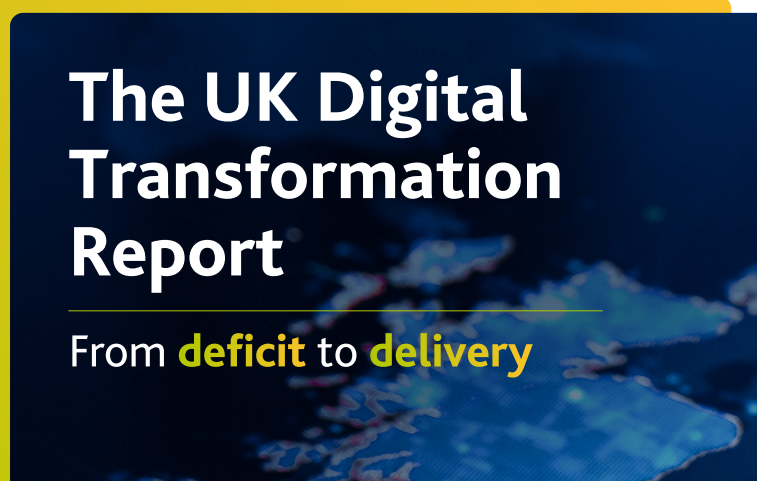October 20, 2025
ArvatoConnect Statistics Highlight UK Digital Growth and Deficit Risks

Digital transformation remains the ongoing objective of many UK companies, and acts a strand of hope for many firms seeking to grasp the benefits of AI.
A fresh report by ArvatoConnect finds that private sector digital transformation is growing at scale, with three-quarters (76%) now delivering organisation-wide projects.
However, as implementation speeds up, they note that gaps remain as businesses roll out new technologies without proper planning or performance measurement.
As the UK targets tech-led growth, 51% of firms view concerns about AI safety, security and ethics as the leading barrier to successful implementing digital initiatives.
A ‘Digital Deficit’ Puts Growth Hopes at Risk
Britain’s tech sector and businesses remain focused on digital transformation as the best way to do business and to capture the benefits of AI. In a new report, The UK Digital Transformation Report: From deficit to delivery, shows as impressive 137% increase in business-wide transformations.
It found that more than three-quarters of firms (76%) are now rolling out organisation-wide initiatives. Compared to 32% that were doing so 12 months ago – highlighting an impressive increase.
Notably, almost all (95%) of respondents said they are confident that their digital transformation projects will achieve their objectives, with the most significant areas of focus being IT (cited by 90%), customer services (51%), finance and admin (50%) and marketing (43%).
The Downside to the Knowledge Gap
Despite this confidence rating – which has grown from 74% in 2024 – the findings point to an enduring ‘digital deficit’ with many firms failing to implement basic planning, process or impact measurement.
Just one in two (53%) of the businesses surveyed said they had gathered end-user insight before making changes, and over half (53%) haven’t sought feedback on how well new systems or technologies are delivering once in place.
As many as three in five (60%) have failed to gain colleague buy-in for their project, while only half (56%) had trained employees on new the technologies and processes being rolled out.
Critically, more than a third (38%) had yet to implement any form of performance monitoring, with half (50%) yet to set KPIs to track success.
Standby For the Action Plan
The research comes as the UK continues to invest significantly in digital transformation, including the creation of new AI Growth Zones as part of the government’s AI Opportunities Action Plan. However, the research points to the need for regulatory guardrails, with firms deterred by potential risks in relation to AI.
More than half (51%) cited concerns about the technology’s safety, security and ethical risks as the biggest barrier to successful rollout within their business. These concerns lead other organisational issues, including legacy systems (40%), technical skills gaps (40%) and budget constraints (35%).
James Towner, chief growth officer at ArvatoConnect, said: “AI and digital transformation represent a once in a generation opportunity for the UK economy – unlocking productivity, powering innovation and setting new benchmarks for customer experience. But businesses are putting that potential at risk if they don’t close the gap between ambition and execution.
“Our research shows clear momentum, with more organisations embracing digital at scale. But too many are pressing ahead without the strategies, safeguards or performance measurement needed to make transformation stick. Without this, they risk falling short of their goals and losing ground to more agile competitors.
“What’s more, successful transformation isn’t just about adopting AI – it’s about deploying it safely and ethically. That means putting guardrails in place to encourage innovation but protect against bias, hallucinations and misinformation, and also ensuring solutions build trust with both customers and colleagues.
“This is a critical inflection point. Businesses that move decisively, with clear plans, strong governance, and a focus on responsible innovation, will be the ones to turn this moment into lasting growth.”




